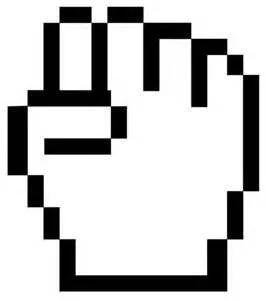 The post-2015 agenda will focus on evidence. The mantra “funding for what works” is gaining momentum, and policy makers are eager for better data to design actions and monitor performance. The
high-level panel on the post-2015 development agenda puts this clearly: it wants to see a global “data revolution”.
The post-2015 agenda will focus on evidence. The mantra “funding for what works” is gaining momentum, and policy makers are eager for better data to design actions and monitor performance. The
high-level panel on the post-2015 development agenda puts this clearly: it wants to see a global “data revolution”.
A revolution needs revolutionaries (and here are a couple of genuine data pioneers). But how can diverse groups around the world come together to help make development data better? The panel proposes a new “Global Partnership on Development Data”; this post proposes a first idea of how this might work and how it might differ from past efforts. I’d like to know what you think.
Accelerating Quantity, Quality, Availability and Usability of Data
The partnership’s objective would be to drive an international acceleration in the quantity, quality, availability, and usability of data for development. In short, it would address the market failures that lead to gaps in data use and coverage in developing countries by raising and maintaining the profile of these issues, and convening the resources and expertise to tackle them.
A Broad, Inclusive Network, Responsive to Emerging Trends
What would be new is the breadth of collaborators and the activities the partnership would pursue. With the rapidly advancing state of technology, data, and data users and providers, the partnership needs a diverse membership - governments, national statistics offices, donor agencies, global and local NGOs, academic and research institutions, the private sector and others. It needs to invest in research and remain flexible to accommodate emerging trends and ideas.
With the requirements for inclusiveness and flexibility, and the expected advocacy and convening work, the partnership would run best as a network model with working groups – many pieces, loosely joined by a lightweight secretariat that would facilitate virtual and in-person collaboration, public communications and reporting to high-level summits and the like.Diagnostics and Monitoring for Objective Setting
A country-level data diagnostic assessment looking at 4-5 problem domains across major data areas would initially inform work and objective setting. Example problem domains could include:
- Data coverage and quality
- Data documentation
- Accessibility, usability and “openness” of data
- Technology infrastructure and data management
- The use of “alternative” data sources – innovative data collection methods, data collected through the delivery of public services, and, of course, “big data”.
Working Groups and Funding Sources for Closing Data Gaps
Working groups would initially be created to work along each of the problem domains. These would be self-organizing groups based on mutual interest, the right mix of capabilities, and needs identified by the diagnostic above. Initial groups focused on problem domains would be proposed and assumed to evolve as needed. Not all partnership members would be engaged in solving each problem.
The partnership could provide a common source of funding to the extent possible. Funding instruments would be contoured to the nature of specific problems. Along with the current set of funding instruments supporting data production, use, and accessibility, one could add:- Instruments to front-load investments in data (useful for establishing some benchmarks early on)
- “Challenge” funds, based on the diagnostic work. For example, the partnership could organize global competitions for ideas on how to solve priority problems, and fund the implementation of the best proposals or results.
- “Innovation” funds to catalyze research into how best to make use of alternative data sources as they become commonplace in developing countries.
Let’s get started
We don’t know if this mode of partnership will work, so we need to test it quickly through pilots and experimentation. We could begin with a quick assessment for a few problem domains in a few countries. We could develop some pilot working groups to find ways to fill the gaps. Here, the focus would be on finding examples of what worked in other countries (in similar circumstances), and applying it. As we learn what new forms of collaborations work, the problems being tackled would expand.
Are you a data revolutionary? Can you help start a data revolution?Don't forget to tune in to the live session on the "Post-2015 Global Development Framework" on Thursday October 10th.


Join the Conversation